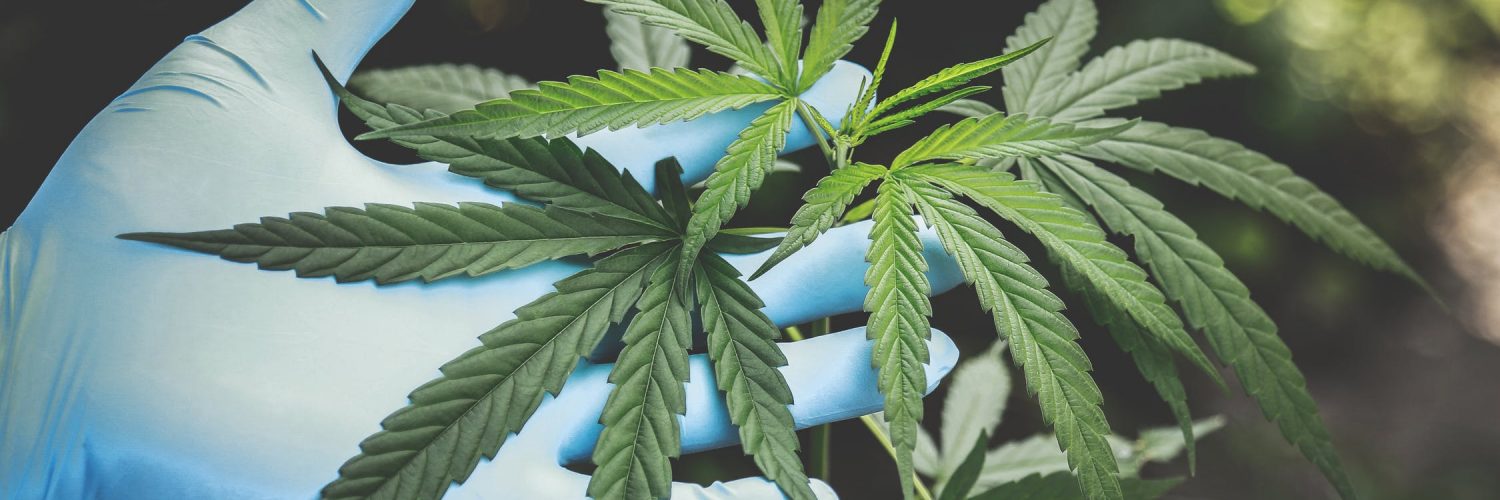More workplace errors, injuries and accidents and less productivity on the job. These are top reasons why employers across Arizona are opposing Proposition 207 that would make recreational marijuana legal in the state.
The measure threatens to put more impaired drivers on Arizona roads, which worries Tony Bradley, president and CEO of the Arizona Trucking Association that represents 110,000 workers across the state.
“If Prop. 207 were to pass, it would hinder the safety of Arizona’s truckers and the ability of the employers we represent to keep their workplaces safe,” Bradley said. “The safety of our drivers and employees is paramount.
“Proposition 207 is not safe for Arizona’s drivers or workers. It would weaken both current marijuana DUI laws and employer protections, making it more difficult to get impaired drivers off the road and impaired employees out of the workplace.”
Dozens of organizations, elected officials, churches oppose initiative
The association is one of dozens of business advocacy groups, medical and substance abuse providers, elected officials, parent groups, law enforcement agencies, churches and others who are making a final plea to voters to say “no” when they head to the polls today.
Proposition 207, also known as the Smart and Safe Act, would legalize the adult recreational use of marijuana for adults 21 and older. Citizens could possess up to 1 ounce of marijuana with no more than 5 grams being marijuana concentrate and could have up to 12 marijuana plants in households with two or more adults. Among its goals are to raise sales tax revenues and decriminalize marijuana offenses.
But there are many hidden dangers within the 17-page ballot measure, said Lisa James, chair of the anti-207 campaign committee, Arizonans for Health and Public Safety.

“Under the proposition, employers will have difficulty taking adverse action against employees, likely ending up in expensive litigation as employees exercise their right to use marijuana. And, although they can prohibit marijuana use at work, there is nothing stopping employees from using off-site, and then going to work at a daycare, elderly care facility, or worksite,” James said.
Ballot initiative creates cannabis monopoly
For those who believe the law will allow new industries to flourish in the state, think again, James said. Language within the lengthy proposition would give a “monopoly” to a few dozen operators currently in business here.
“Prop. 207 protects the marijuana industry, while setting up other employers for costly lawsuits, high turnover, and dangerous working conditions,” she said.
Today’s marijuana is far more potent for workers on the job
Unlike the marijuana of decades past, today’s product is far more potent. And much more likely to create mishaps on the job for employees unable to resist a toke in the morning before work or on their lunch break, James said.
And unlike alcohol, marijuana is now available in products like baked goods and vape cartridges that do not produce a telltale smell, she said.
It’s also more dangerous for the brain development of children and teens who have higher rates of use in states where cannabis is legal, she said.
“Know that today’s marijuana is far more potent than the marijuana of the ’60s, ’70s, ’80s and even ’90s. As late as 1990, the average THC level of a joint stood at 4 percent to 5 percent,” she said. “Today, it’s more than 15 percent, and up to more than 80 percent when consumed in a concentrated form, such as what is used in vape pens.”
Opposition from the left
At least one group that is a proponent of more lenient marijuana laws opposes the initiative, too.
The progressive group Living United for Change in Arizona (LUCHA), said this specific measure would create a monopoly for a select few businesses.
LUCHA, which endorsed Bernie Sanders for president, is opposed to funding from the proposition going to police agencies.
“They locked us up, and now they locked us out of the business,” LUCHA states on its No on 207 website. “The biggest beneficiaries of the proposition are the business insiders and funders of the initiative. Their greed is focused on creating a special interest monopoly and will leave little room to none for people of color to own a license.”
Red flag for new investment in Arizona
Glenn Hamer, president and CEO of the Arizona Chamber of Commerce and Industry, said passage of Prop. 207 would raise a red flag to companies looking for a place to locate.
“The potential consequences of legalization are severe, ranging from an uptick in workplace accidents and lower overall workplace productivity, to jeopardizing our workforce and economic development efforts,” Hamer said.
Once passed, the measure would be “locked in” for good because the only way to reverse a voter initiative is through another costly initiative, he said.
“We should not pass a new law by initiative that will be impossible to ever change or undo, nor should we encourage special interests to use Arizona’s ballot box as a personal laboratory for risky experiments,” he said.
James counts the ways
Because of the flaws in the proposition, employers and families would be dealing with more drug related issues with less legal recourse if the ballot measure is approved, said James, who is a longtime board member and past president of the Maricopa County Industrial Development Authority, whose mission is to attract industry to the region.
James lists many reasons why Prop. 207 is bad for business, the economy, law enforcement and families:
– Current law allows employers to enforce zero tolerance drug use policies in the workplace, and to take adverse action against employees who test positive for marijuana. Prop. 207 would not allow employers to prohibit use of marijuana by employees outside the workplace nor take adverse action against an employee based solely on a positive test for marijuana.
-Employees who are high at work could create liability issues for employers and result in costly litigation battles.
-Prop. 207 makes using marijuana a statutory right, making it more difficult to prosecute marijuana-impaired drivers.
– In the six Western states with recreational marijuana, tax revenue accounts for less than 1 percent of state revenues. Yet, a study in Colorado found that each dollar brought in by marijuana taxes requires spending $4.50 to mitigate the costs related to health care and other issues related to drug use.
-Prop. 207 caps the marijuana tax at 16 percent. Arizona’s lawmakers would have no way to raise that amount if the public costs related to drug issues soar.
-Cannabis companies would be allowed to advertise their wares, including THC-cookies, gummies and candy, on all platforms that children and teens frequent like social media.
Who opposes Prop. 207?

Elected officials including Gov. Doug Ducey, Senate President Karen Fann, House Speaker Rusty Bowers, county attorneys, sheriffs, and others oppose the measure.
Dozens of organizations also are asking citizens to vote “no” including:
- Arizona Automobile Association (AAA)
- Arizona County Attorneys Association
- Arizona Chamber of Commerce and Industry
- Arizona Chapter of the American Academy of Pediatrics
- Arizona Catholic Conference Bishops
- Arizona Free Enterprise Club
- Arizona Gang Investigators Association
- Arizona Medical Association
- Arizona Multihousing Association PAC
- Arizona Narcotic Officers Association
- Arizona Psychiatric Society
- Arizona State Troopers Association
- Arizona Sheriffs Association
- Arizona Trucking Association
- Americans Against Legalizing Marijuana
- Center for Arizona Policy Action
- Church of Jesus Christ of Latter-day Saints
- DUID Victim Voices
- East Valley Partnership
- Greater Phoenix Chamber
- Living United for Change in Arizona
- Marijuana Victims Alliance
- Moms Strong
- Parents Opposed to Pot
- Smart Approaches to Marijuana
- Southern Arizona Leadership Council
- Substance Abuse Leaders of Arizona
- Surprise Regional Chamber of Commerce
- Way Out West Coalition
- Yavapai County Substance Abuse Coalition
To see the full list of those who oppose it, go to No on 207 partners















Add comment